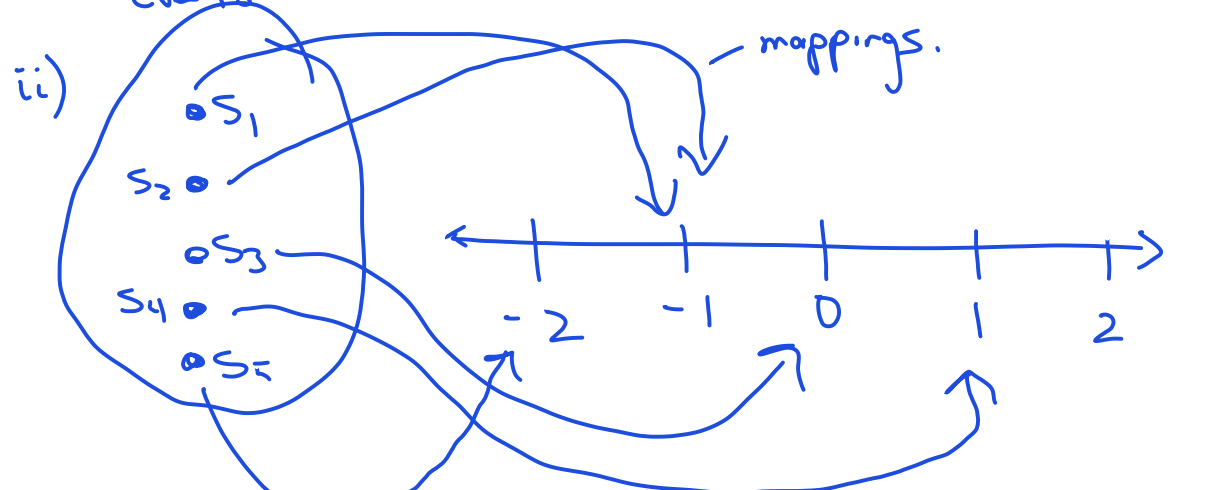Random Variable
is a random variable (r.v.) if it is a function that maps each outcome of a random experiment (sample space ) to an element in .
Random Variable
A random variable is a variable that can take on different values randomly.
Ex: You roll a dice twice. We define as the sum of the faces, so it maps to
- Domain: Set of outcomes in in the experiment
- Range: Real value
The random variable can follow various Distributions (see this page for more), such as
There are two types of random variables:
- Discrete Random Variable: Takes on Integer values
- Continuous Random Variable: Takes on real values. Ex: Measuring heights of people
Other Notes
- The experiment is random, the function, , is not.
- This is confusing. The function is deterministic, input is random, but output behaviour is known. It would be stupid if the function is not deterministic.
- Ex: Roll a die 3 times. Define
- In this case, the actual coin flip (input) is random. However, calculating the function to determine is not, we know how to compute it and it is the same every time based on the input.
- Geometric Interpretation of an r.v.
title: [[Independence (Statistics)]] of [[Random Variable]]s
Random variables $X$ and $Y$ are independent if:
$$P(X = x, Y = y) = P(X = x) \cdot P(Y = y), \forall x, y$$title: Relationship with [[Binomial Distribution]]
If $X ∼ Bin(n, p)$, $Y ∼ Bin(n, p)$, and $X$ and $Y$ are independent, then $X + Y ∼ Bin(n_1 + n_2, p)$